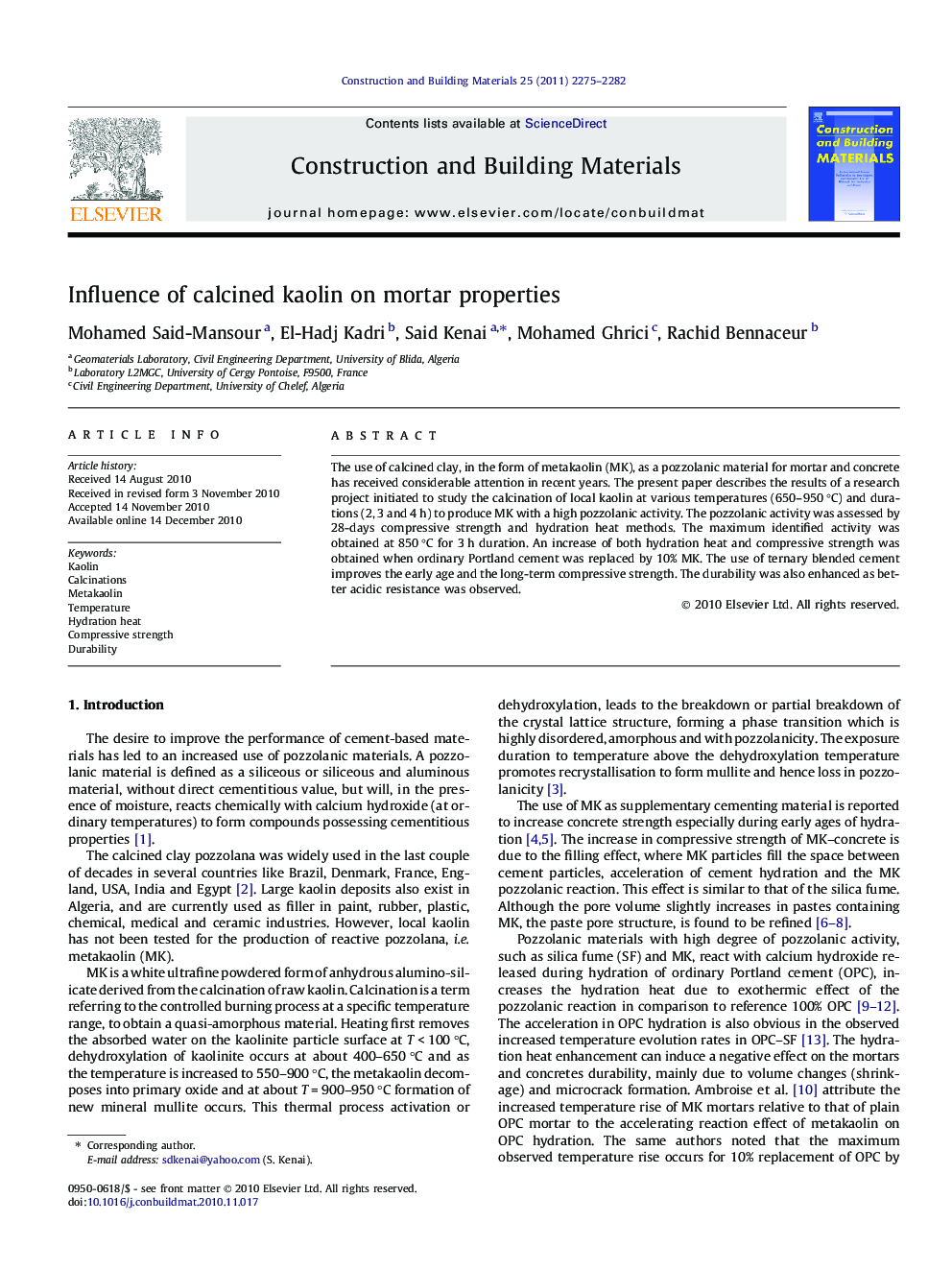| Article ID | Journal | Published Year | Pages | File Type |
|---|---|---|---|---|
| 259263 | Construction and Building Materials | 2011 | 8 Pages |
The use of calcined clay, in the form of metakaolin (MK), as a pozzolanic material for mortar and concrete has received considerable attention in recent years. The present paper describes the results of a research project initiated to study the calcination of local kaolin at various temperatures (650–950 °C) and durations (2, 3 and 4 h) to produce MK with a high pozzolanic activity. The pozzolanic activity was assessed by 28-days compressive strength and hydration heat methods. The maximum identified activity was obtained at 850 °C for 3 h duration. An increase of both hydration heat and compressive strength was obtained when ordinary Portland cement was replaced by 10% MK. The use of ternary blended cement improves the early age and the long-term compressive strength. The durability was also enhanced as better acidic resistance was observed.
Research highlights► The maximum activity of the heat treated kaolin was obtained at 850 °C for 3 h. ► 10% metakaolin increases both hydration heat and compressive strength. ► Ternary blended cement improves early age and long-term compressive strength. ► Durability of metakaolin mortar mixes was enhanced.
